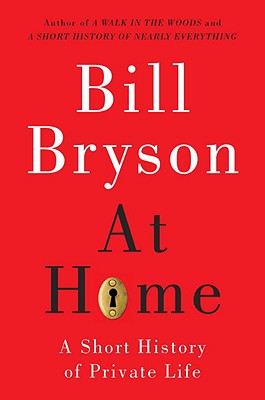
“Houses aren’t refuges from history. They are where history ends up.”
Bill Bryson and his family live in a Victorian parsonage in a part of England where nothing of any great significance has happened since the Romans decamped. Yet one day, he began to consider how very little he knew about the ordinary things of life as he found it in that comfortable home. To remedy this, he formed the idea of journeying about his house from room to room to “write a history of the world without leaving home.” The bathroom provides the occasion for a history of hygiene; the bedroom, sex, death, and sleep; the kitchen, nutrition and the spice trade; and so on, as Bryson shows how each has figured in the evolution of private life. Whatever happens in the world, he demonstrates, ends up in our house, in the paint and the pipes and the pillows and every item of furniture.
Bill Bryson has one of the liveliest, most inquisitive minds on the planet, and he is a master at turning the seemingly isolated or mundane fact into an occasion for the most diverting exposition imaginable. His wit and sheer prose fluency make At Home one of the most entertaining books ever written about private life.
Joe writes:
"I loved this book. Bill Bryson set out to write a history of the world through the home, since the vast amount of history has not happened on battlefields or on some world stage, but quietly, privately, at home. And this book is breathtaking in its scope: histories of indoorslighting, of the clergy in England, of building materials, of food preservation, of the effects of the Industrial Revolution...and so much more. I found myself underlining and adding exclamation points next to so much in this book... for example, did you know that the man
who brought England bank holidays (a revolution to get a day off work that wasn't Sunday) was the same person who coined the term "prehistoric"? Fascinating. And this book is more than a collection of trivial facts. In it, Bryson really illustrates the march of history through the 19th century and how it affected everyday folks. Absolutely worth reading!"
blah
No comments:
Post a Comment